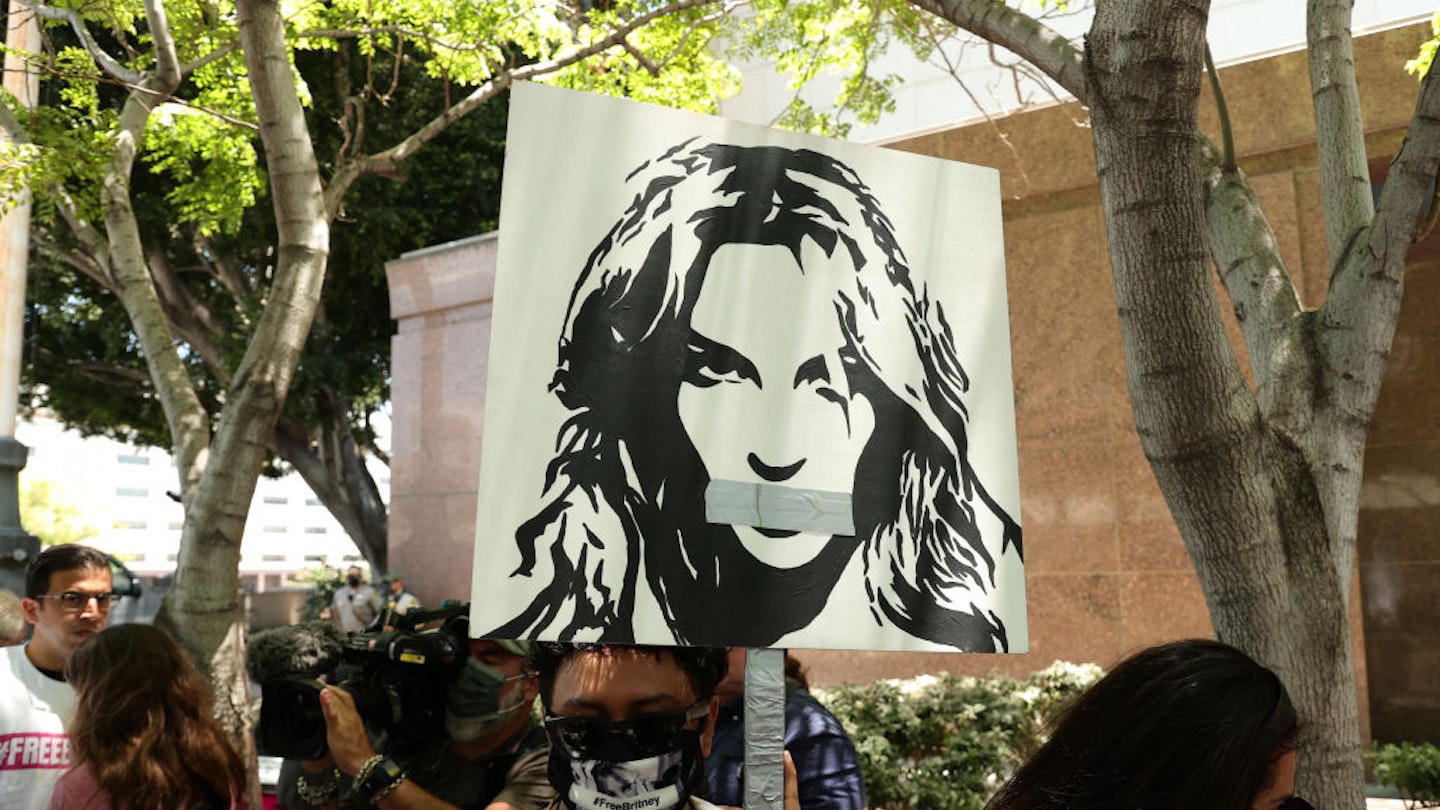This week, Britney Spears was at last able to deliver her highly anticipated statement to Court, breaking her thirteen-year silence over her father’s conservatorship.
Granted in 2008, the conservatorship gives James Spears total control not only over Britney’s estate and financial affairs, but also her day-to-day life. In the ‘Framing Britney Spears’ documentary, which aired earlier this year, we learned that Britney cannot even buy herself a coffee without her father’s permission. In her address to the judge, Britney alleged that she had been prevented from removing her contraceptive intrauterine device and having more children, as well as being placed on powerful antipsychotic drug lithium without her consent. No wonder she also spoke of feeling traumatised and of ‘just wanting [her] life back’.
To the #FreeBritney movement (a group of fans who have campaigned on behalf of the star for years) none of this will come as a surprise. Yet, there is a reason Britney’s story has captured the hearts and minds of the wider public, even those who wouldn’t consider themselves enthusiasts. Britney represents and encapsulates the experiences of millions of women.
There is a curious dichotomy at the heart of the way women who experience mental health issues are perceived. On the one hand they are seen as fragile and in need of constant supervision and micromanagement, on the other there is an expectation that they are capable of continuing to work (particularly if other people’s welfare or incomes depend upon them doing so). We saw this with Amy Winehouse who, whilst clearly in the grips of a serious eating disorder and addiction, was (according to the seminal documentary ‘Amy’) denied access to rehab because her second album was flying high in the charts and she ‘needed’ to perform. Similarly, during the past thirteen years Britney has maintained an active career, including a Las Vegas Residency and a period as a judge on the X Factor. Arguably, both women were seen as a commodity to be exploited, rather than a human being in distress.
The other curious bit of cognitive dissonance at the heart of how we treat women’s mental health is the simultaneous assumption of both exaggeration and necessity to medicate. Whilst, on the one hand, women’s pain (whether physical or psychological) has been shown in numerous studies to be consistently dismissed and diminished, on the other they are twice as likely to be prescribed antidepressants. This isn’t to say, of course, that women don’t sometimes need mental health medication, but most experts agree they are prescribed too readily and often in response to seemingly unrelated conditions (like physical pain and menopause).
Feminist thinkers have hypothesised that this is a hangover from the eighteenth century, when women suffering pretty much any ailment (menstrual cramps, anxiety, infertility – basically any condition which made male doctors feel uncomfortable) were labelled as having ‘female hysteria’ and treated using methods which ranged from laughably senseless to shudderingly inhumane. By believing that women are ‘drama queens’ who must be medicated in order to shut them up, it conveniently allows society to ignore what we are saying whilst claiming it is in our ‘best interests’. It also, many have argued, effectively anaesthetises women against life’s injustices. All of these themes are present in Britney’s story.
To determine whether or not something is definitively rooted in sexism, according to Caitlin Moran, we should ask the question ‘is this happening to the men’? The answer, in Britney’s case, is ‘no’. If a man had shaved his head before turning on a member of the paparazzi we’d hail him as a maverick, a rebel, a hero making an important statement about the state of our culture. We also probably wouldn’t still be wanging on about it almost a decade and a half later.
When men speak about their mental health they are heralded as brave. When they say they’re going to rehab and won’t be working for the foreseeable, we give them a break. When they emerge declaring they are ‘fixed’ and ready to make a comeback we welcome them with open arms. With men, we can simultaneously perceive them as vulnerable and capable of making their own decisions. Britney’s treatment, not just by her family but by the media, speaks to an ancient and omnipresent hypocrisy at the root of our society.
That’s why so many women are holding their breath, waiting to see what verdict is given on Britney’s ‘abusive’ conservatorship. For us, it’s personal.
